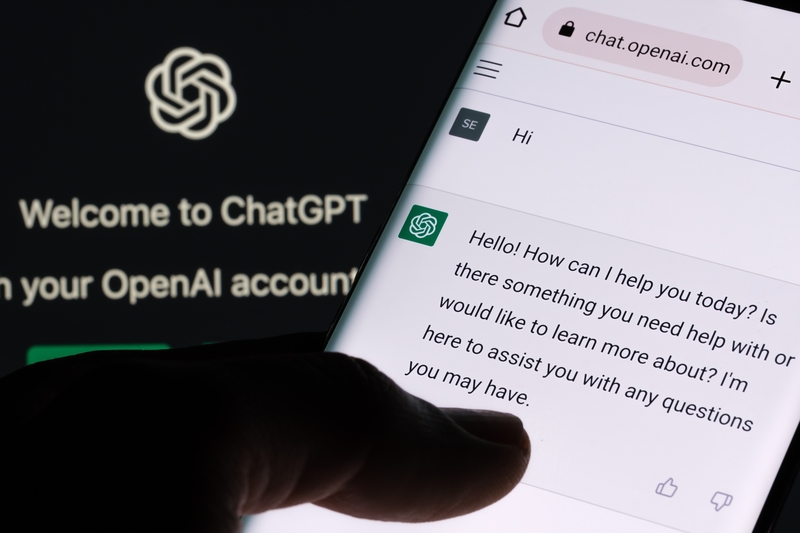Artificial Intelligence (AI) is playing a key role in the digital marketing landscape and transforming many business strategies, SEO being one of them. As AI becomes more integrated into search engines, content quality, user intent and natural language understanding will be the primary focus for SEO strategies.
In this blog, we discuss how AI and SEO are connected and the impact that AI developments are having on optimisation efforts. And why human expertise is still a vital element of your SEO strategy.
How AI is impacting SEO?
SEO is constantly evolving and AI acts as a catalyst in its evolution. Here are a few ways that artificial intelligence is being integrated into search optimisation.
The Role of AI in Shaping SEO in 2025
Google relies on algorithms that crawl and index web pages and rank them based on relevance. With the rise of AI-powered algorithms, there is potential to fast track this process by making search results more accurate and efficient. As a result, businesses will be required to optimise their content to align with user intent and AI algorithms, focusing on original high quality content that keeps users engaged. Which means that human input is still needed to ensure that your brand appeals to the AI search algorithms and attracts and retains the interest of current and potential customers.
AI is no longer just a buzzword—it has become an essential part of the SEO process. Google’s algorithm updates, such as BERT and RankBrain, are already leveraging AI to understand search queries more accurately. However, by 2025, AI is expected to play an even more significant role in transforming how SEO is conducted. Here’s what the future holds:
.Improved keyword research and content optimisation
Keyword research and SEO-focused content are both essential aspects of SEO. AI can help to automate these tasks by quickly understanding the relationship between search trends and keywords. AI-powered tools can also predict user behaviour, enabling SEO professionals and content writers to create strategies that are more likely to attract audiences as a result of being better informed.
Search Intent and Better User Experience
Search engines like Google prioritise a website that offers a smooth user experience. AI can help in this regard by analysing user behaviour data and identifying areas of improvement. For instance, AI can analyse user preferences and suggest personalised content ideas for a blog. AI chatbots can also directly provide assistance to website visitors, further improving the customer experience. As a result, SEO and web build professionals can confidently implement strategies that will significantly improve the user experience.
Voice search optimisation
With the rise of voice assistants, there has been an increase in voice search queries. As AI advances, voice recognition technology will improve making voice search a key aspect of SEO.
Visual search optimisation
Platforms like Google Lens enable users to search for products using an image instead of text. AI-powered image recognition technology can identify objects within images, allowing search engines to produce accurate search results. To take advantage of visual search, it’s important to optimise your website’s product images, making it as easily accessible to Google.

Generative Engine Optimisation (GEO): The Next Frontier of SEO
Generative Engine Optimisation (GEO) is revolutionising the way businesses approach online visibility in the rapidly evolving digital landscape. Unlike traditional SEO, which focuses on optimising content for search engines like Google, GEO targets AI-driven search platforms such as ChatGPT, Perplexity, Gemini, Copilot, and Google AI Overviews. These platforms use sophisticated algorithms to deliver personalised, conversational, and contextually relevant responses to user queries.
With GEO, businesses can position their content to appear prominently in these AI-generated results, ensuring their brand stays top of mind when users search for topics related to their products, services, or areas of expertise. GEO isn’t just a technical upgrade—it’s a fundamental shift in how information is delivered and consumed online.
While GEO brings new opportunities, it doesn’t exist in isolation. When integrated with SEO, it creates a powerhouse strategy for online visibility:
- SEO ensures your content ranks high on traditional search engines like Google, making it easy for users to find.
- GEO ensures your content stands out on AI-driven platforms, enhancing its relevance, presentation, and engagement for modern search behaviors
By leveraging both GEO and SEO, we can deliver an unparalleled user experience for your customers. SEO ensures your content is easy to find and ranks high in Google while GEO enhances your human-written content by presenting it as relevant and engaging on AI-driven platforms.
Creating content that connects with your audience.
As we look at the future of SEO in 2025, one thing remains certain: understanding your target audience is more important than ever. SEO strategies need to be centred around your customers’ pain points, needs and desires. In order to capture their attention, content writers will need to focus on answering customer questions, addressing concerns and providing solutions.
The key to successful SEO content lies in researching and uncovering topics that truly resonate with your audience. Creating long-form content that speaks directly to your customer’s needs and builds trust will position your brand as a thought leader.
Google provides helpful questions to self-assess your content, one of which asks whether content provides original information, reporting, research or analysis. So while AI can be used to assist in content creation, it’s important to ensure that your content is original, credible, fact-checked and informative, and captures the attention of your audience. In other words, written by a human. Producing mass content with no real value will actually hinder your SEO and lower the credibility and trustworthiness of your brand.
Stay ahead of the competition with SEO strategy
The SEO team at Cariad will always double down on your business’s SEO strategy. We know SEO requires consistency so we use a wide range of techniques and the latest innovations so your business stays ahead of the competition.
From optimising, improving and monitoring your website to constantly striving to achieve SEO and PPC KPIs, we cleverly integrate the best parts of AI to deliver you the best results possible!
Drop us a line on 01992 582 824 to find out more.
